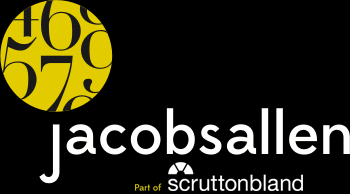HMRC set to investigate furlough fraud

Are your accounts in order? HMRC paused tax investigations during the peak of the Covid-19 crisis but now they are resuming and they will be looking into misuse of the furlough scheme and self-employed income support scheme. There have been over 3,000 reports to the HMRC fraud online service just about the furlough scheme.
HMRC will be checking whether staff who businesses furloughed appeared on real-time information reports before March 19, 2020 and whether those staff did work during furlough. Meanwhile, self-employed workers who claimed support may be checked to confirm whether or not they meet the eligibility criteria.
They will, when an amendment to Finance Bill 2020 is passed, look to recover any grants wrongfully claimed via the coronavirus support schemes.
Claimants who have wrongfully claimed government support during the pandemic will have 30 days to admit their mistake before penalties are issued. These penalties will be treated as based on deliberate behaviour given the warning and adequate time for reporting errors.
If you are investigated it is likely this could trigger a full probe of your accounts, which could be particularly disruptive in the current climate.
While we at Jacobs Allen Chartered Accountants and Chartered Tax Advisers encourage our clients to ensure their accounts are always up to date and in order, we understand that sometimes best practice can slip. If this has been the case, now could be the right time for us to help you get your affairs in order before they are thrown into the spotlight.
What triggers an investigation?
Whilst HMRC is putting a spotlight on misuse of the coronavirus support schemes, there are other causes of enquiries that could be completely beyond your control. Sometimes a business, or an individual, is selected at random or it might be that you operate in a sector that’s come under scrutiny. HMRC also target those who have inconsistencies within their tax returns or routinely file late.
What does a tax investigation involve?
There are three types of investigation that HMRC can conduct and whichever level of probe, you can expect HMRC to examine some or all of the level of tax you pay, your self-assessment return, business and personal accounts and your PAYE or VAT records.
- Random checks can be carried out on any kind of business
- Aspect enquiries look into a particular part of your accounts where HMRC suspects an error, such as forgetting to include all your savings income on your tax return. However, if they uncover more serious issues, they may escalate it to a full enquiry.
- Full enquiries usually happen if HMRC believes there is a significant risk of error. They may take a comprehensive review of your accounts, including both business and personal records
What will happen?
HMRC will either contact you direct or us as your accountants, and give you 30 days to respond to their request for information. If you are aware you have made an error in your reporting, we would encourage you to admit it as soon as possible because they will take into account your honesty when determining your fine. This could also reduce the length of time the investigation will take, which is important as they can be very disruptive to your day to day business as well as adding additional stress.
Investigators may visit your place of business or your home if that is where business records are kept, and we would strongly recommend you invite us along to support you at this stage.
At the end of a tax investigation, HMRC will tell you whether they believe you have underpaid or overpaid tax, and notify you about any penalties due. If we are involved, we will have provided information to HMRC according to their entitlement, agreed any amount and negotiated an appropriate penalty amount if that is relevant with them.
How far back will they be looking?
If HMRC believe an error has been made innocently or they are looking into a VAT case they can look back at up to the past four years of accounts, but this increases to six years if the investigation is due to careless behaviour.
However, it is important to know, for cases of deliberate tax evasion, HMRC can look into records going back as far as 20 years.
How much will I be fined if I have miscalculated my tax payments?
Should HMRC discover that you have understated or misrepresented your income in order to minimise your tax liability then you can expect to face a penalty and the level will vary depending on whether or not the error was deliberate, whether you notified HMRC and how long ago the error was made.
If the error was made because of what HMRC calls a ‘lack of reasonable care’ the penalty could be up to 30% of the extra tax due while deliberate and unconcealed errors can result in fines of between 20% and 70% of the extra tax due. If the error was both deliberate and concealed – in that you took steps to hide it rather than owning up to it – the penalty will be between 30% and 100% of the extra tax due.
It’s possible to reduce the penalty by cooperating, telling HMRC about any errors, helping to work out what extra tax is due, and providing access to your tax and accounting information.
Contractual disclosure facility
Where the revenue suspects an individual has committed tax fraud they may offer a chance to admit to the errors through a contractual disclosure facility. This provides immunity from prosecution for tax offences, in return for a full admission of the tax you have not paid. This only applies where tax has been avoided through deliberate conduct – it’s not for those who are disclosing accidental errors, so make sure you fully understand what the contract entails before you respond.
If you have any concerns about your accounting and tax payments, speak to us now so we can help you address the issues before a probe is launched.

